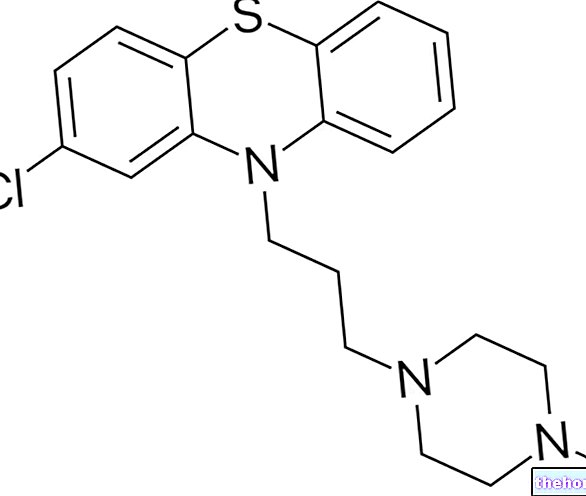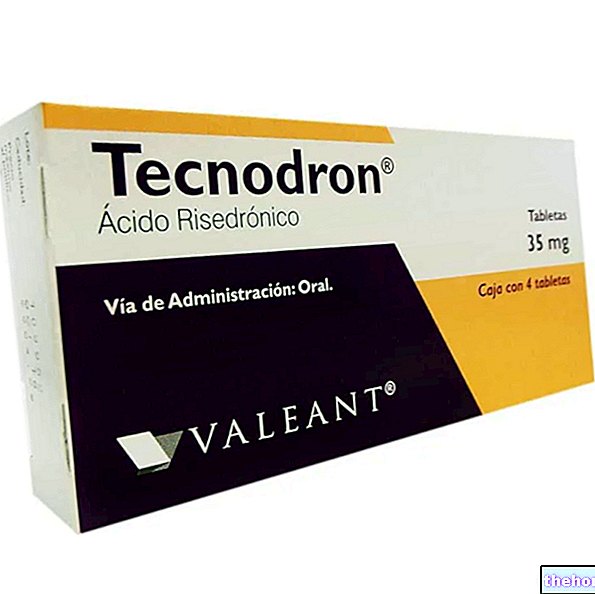
What is Pylobactell?
Pylobactell is a diagnostic test. It is available as a kit that includes a white soluble tablet containing 100 mg of the active substance 13C urea.
What is Pylobactell used for?
Pylobactell is used for the diagnosis of infection with Helicobacter pylori (H. pylori) in the stomach and duodenum (the first section of the small intestine). H. pylori it is a bacterium that contributes to the onset of diseases such as dyspepsia (gastric acidity, abdominal swelling and nausea), gastritis (stomach inflammation) and peptic ulcer (ulcerative lesions in the stomach or duodenum).
The medicine can only be obtained with a prescription.
How is Pylobactell used?
Pylobactell is a breathing test: that is, samples of exhaled air are collected in the tubes contained in the kit. These samples are then sent to a qualified analysis laboratory.
To perform the test the patient must collect six breath samples, three before taking the Pylobactell tablet and three after. The patient must fast for four hours before the test, so that it can be done on an empty stomach. patient has eaten a heavy meal, will have to fast for six hours before performing the test.
The patient must first consume a "test meal" (eg 200 ml of undiluted pure orange juice). After five minutes, the patient collects three breath samples. After another five minutes he takes the dissolved Pylobactell tablet in water. Finally, after 30 minutes (ie 40 minutes after the test meal), the patient collects three more breath samples. For more information on performing the test, see the package leaflet.
The use of Pylobactell is not recommended in patients below 18 years of age as there is insufficient information on efficacy in this category.
How does Pylobactell work?
The active ingredient in Pylobactell, 13C urea, is the natural chemical urea labeled with carbon 13 (13C). This means that it contains 13C, a rare form of the carbon atom, rather than carbon 12 (12C), the most common form in nature.
H. pylori it produces enzymes, called ureases, which break down urea into ammonia and carbon dioxide. The carbon dioxide is then eliminated from the body in the exhaled air. If the patient has H. pylori in the stomach or duodenum, the 13C urea contained in the Pylobactell tablet is decomposed and the carbon dioxide in the exhaled air also contains 13C. This 13C-labeled carbon dioxide can be measured in specialized laboratories using a technique called "mass spectrometry. ". If after 30 minutes the exhaled air sample contains more marked carbon dioxide (positive test), the patient may have H. pylori in the stomach or duodenum. If the exhaled air does not contain more marked carbon dioxide, the patient may not have it H. pylori in the stomach or duodenum.
How has Pylobactell been studied?
The data provided in support of the use of Pylobactell comes from two main studies on the use of antibiotics to treat infection with H. pylori, in which Pylobactell was used as a test.A total of 366 patients underwent the Pylobactell test and a standard biopsy (a test in which a tissue sample is taken from the stomach to look for "possible infection). The results obtained were compared to find agreement.
What benefit has Pylobactell shown during the studies?
Pylobactell has demonstrated greater than 95% sensitivity in detecting infection with H. pylori.
What is the risk associated with Pylobactell?
There are no known side effects of the test.
Pylobactell must not be used in people who may be hypersensitive (allergic) to 13C urea or other ingredients in the tablet. Pylobactell testing should not be performed on patients with a known or suspected gastric infection, which could interfere with the breath test.
Why has Pylobactell been approved?
The Committee for Medicinal Products for Human Use (CHMP) decided that Pylobactell's benefits are greater than its risks for diagnosis. in vivo of gastroduodenal infection from H. pylori and therefore recommended the release of the "authorization for the marketing of the product."
Other information about Pylobactell:
On 7 May 1998 the European Commission issued a "Marketing Authorization" for Pylobactell, valid throughout the European Union. The "Marketing Authorization" was renewed on 7 May 2003 and 7 May 2008. The the holder of the marketing authorization is Torbet Laboratories Limited.
For the full version of Pylobactell's EPAR click here.
Last update of this summary: 06-2008.
The information on Pylobactell - 13C urea published on this page may be out of date or incomplete. For a correct use of this information, see the Disclaimer and useful information page.























-nelle-carni-di-maiale.jpg)




